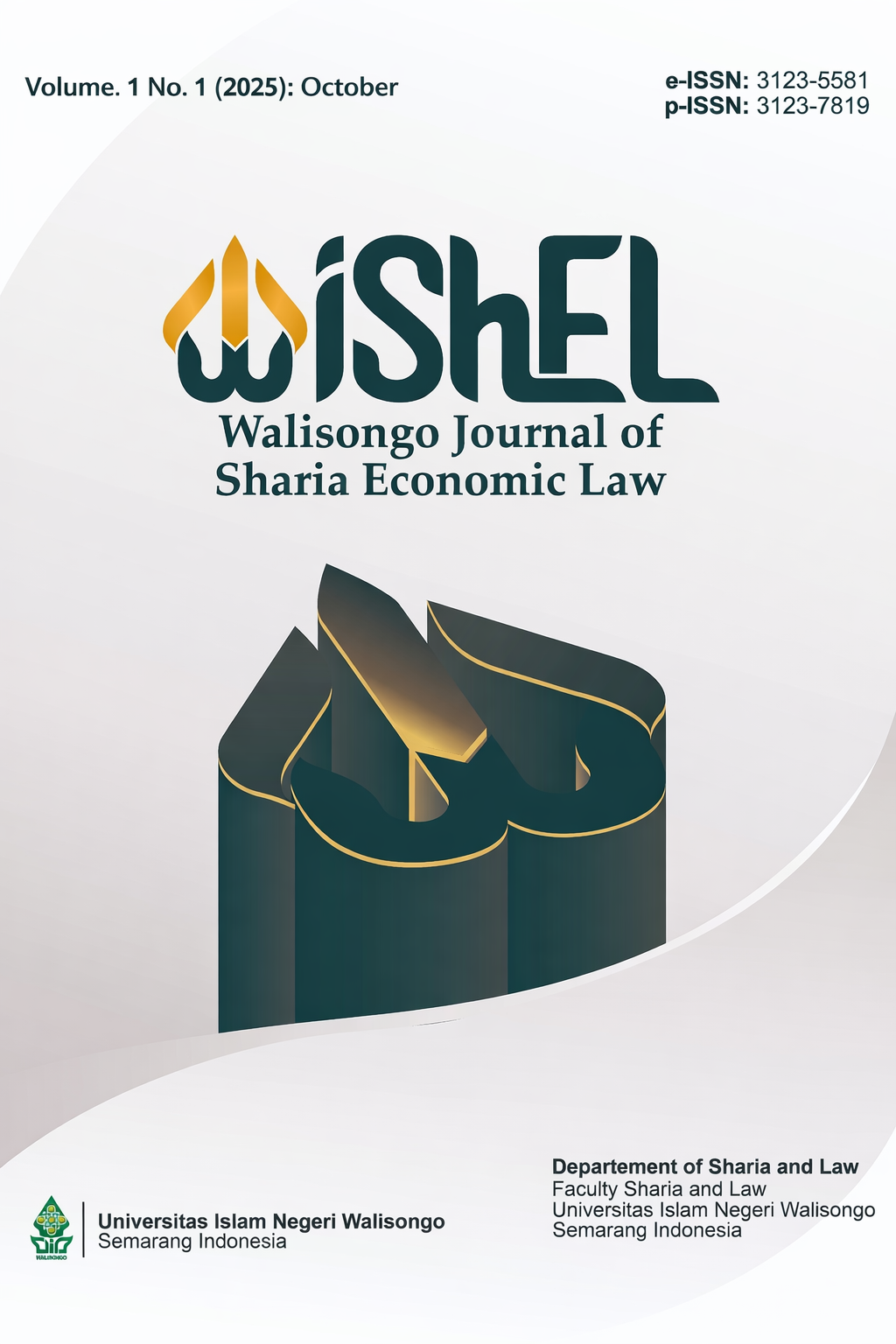Development of Internal Supervision and Control System in The Management of Sharia Pawnshops Based on Sharia Economic Law
DOI:
https://doi.org/10.21580/wishel.2025.1.1.29342Keywords:
Sharia Pawnshop, Sharia Economic Law, Internal Supervision, Sharia Supervisory Board (DPS), Governance AccountabilityAbstract
Sharia pawnshops have a strategic role in providing financial services in accordance with Islamic sharia principles, especially in encouraging people's financial inclusion. However, practice in the field still faces a number of challenges, especially in terms of internal supervision and control. Problems such as inconsistencies in the implementation of contracts, low operational transparency, and the weak role of the Sharia Supervisory Board (DPS) are obstacles in creating accountable and effective governance. This research aims to develop a supervisory model based on sharia economic law that is adaptive and applicative. Using a qualitative case study approach, data was obtained through in-depth interview techniques, documentation, and direct observation at Sharia Pawnshop units in the Central Java region. The results of the study show that the integration of the principle of hisbah, the use of information technology, and the strengthening of the active role of DPS have the potential to create a supervisory system that is more responsive, measurable, and in line with sharia values. Implementing recommendations were also submitted to support sustainable institutional transformation.
Downloads
Downloads
Published
How to Cite
Issue
Section
License
Copyright (c) 2025 WiShEL: Walisongo Journal of Sharia Economic Law

This work is licensed under a Creative Commons Attribution-NonCommercial 4.0 International License.
This work is licensed under a Creative Commons Attribution-NonCommercial 4.0 International License (CC BY-NC 4.0). All writings published in this journal are personal views of the author and do not represent the views of this journal and the author’s affiliated institutions.











